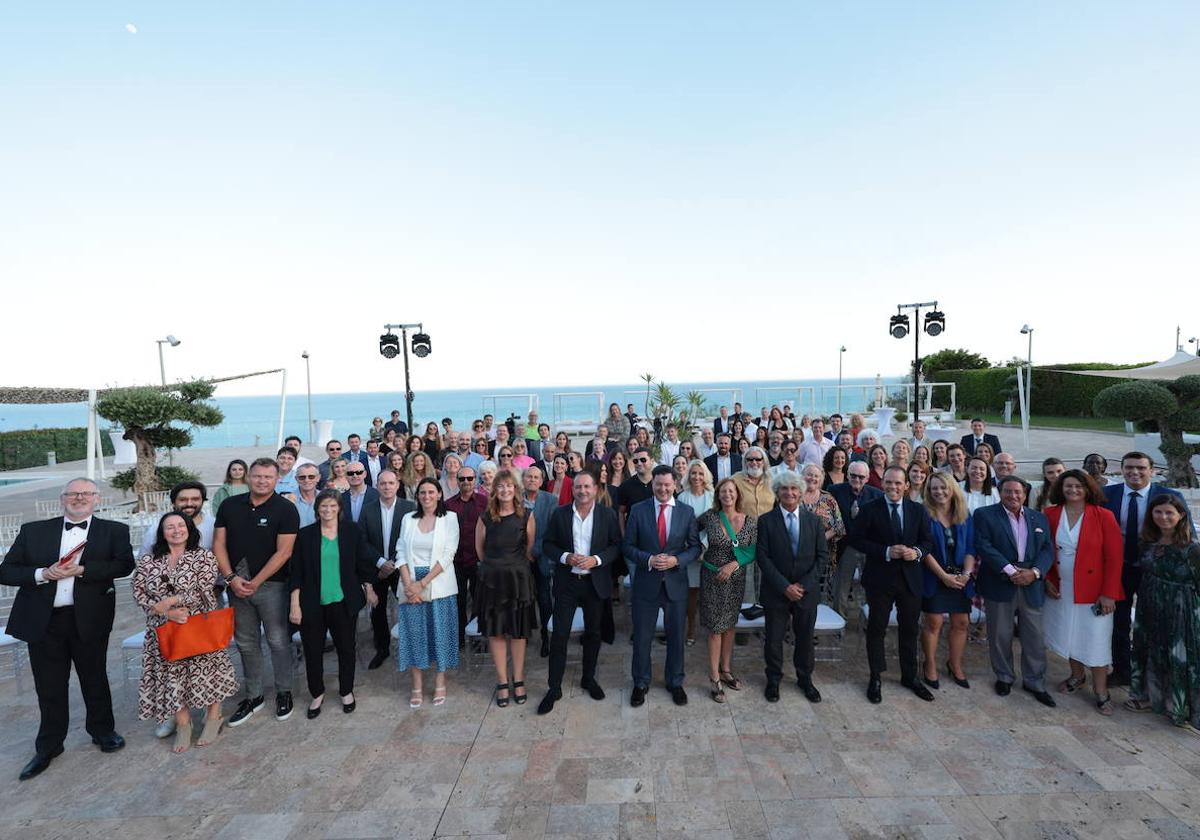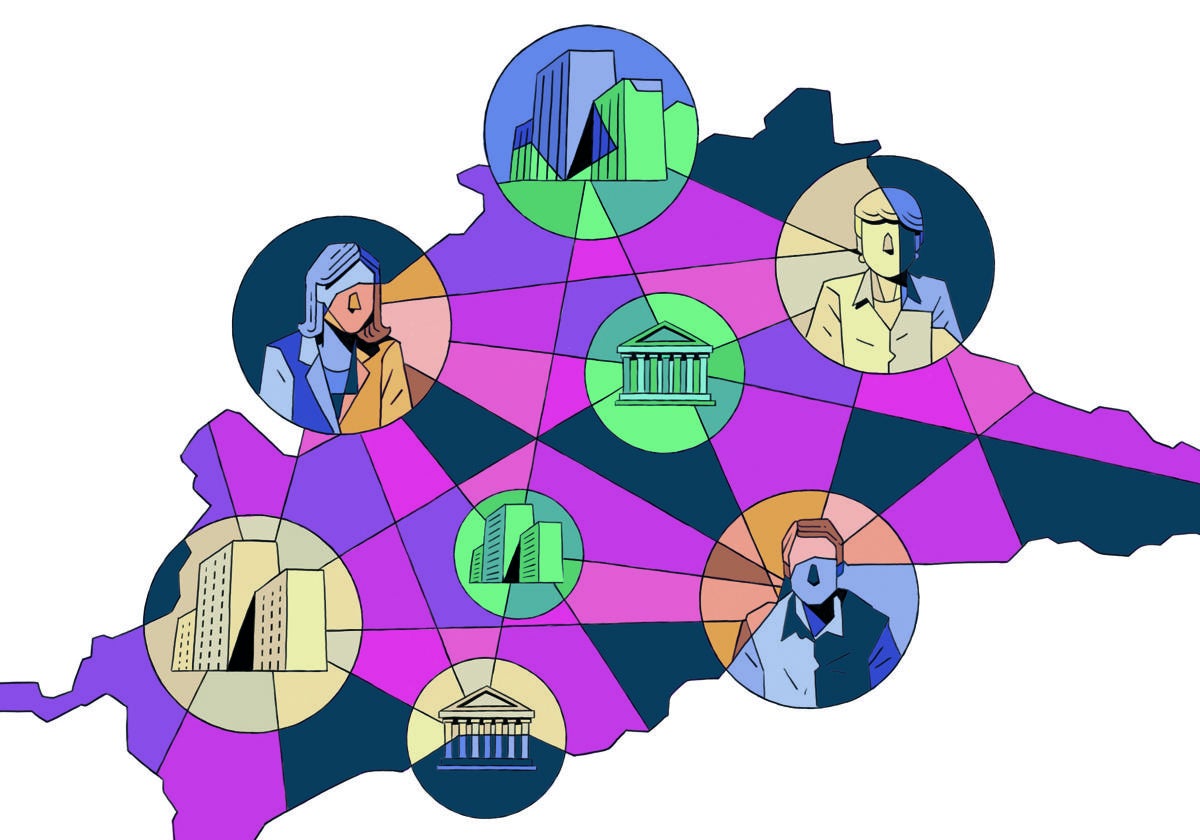Top International Business Guide
Rafael Pérez Peña
Domingo, 4 de junio 2023
Malaga province’s Consular Corps, currently formed by 50 consulates, which are 50 windows to other countries, has become, over its four centuries of history, the cornerstone of relations between different institutions, businesses and nationals of the respected countries represented. It has been, therefore, a reliable witness, actor and spokesperson of the current qualitative and quantitative “eclosion” of the new Dragon of the South of Europe, which is the province of Malaga.
Malaga, with more than 400,000 foreign residents, 13 million tourists, 146 destinations reached from its airport and more than 18 million passengers, is today one of the great provinces of the Mediterranean, something that has been recognised by the UN, which chose the area to locate five offices of its different organs: the International Training Centre for Authorities and Leaders (UNITAR/CIFAL); the Technical Unit of the General Fisheries Commission for the Mediterranean (FAO); the International Organization for Migration (IOM UN), the UN Office of Counter-Terrorism (UNOCT); and the United Nations Capital Development Fund (UNCDF).
Malaga province is today in the midst of a new economic revolution, just as it was in the 19th century, but this time based on culture, construction, tourism, logistics and technology. There is no sector of the economy in which Malaga is not a benchmark. This collective success has caught the interest of the whole world.
Some 72 multinationals have set up in Malaga in the last four years, the most numerous among them being British (14) and from the US (11), especially software and and telecommunications companies, such as Vodafone, Oracle and GlobalLogic, a subsidiary of Hitachi, not forgetting Telefónica’s Campus 42, the new Citigroup Hub and the Google cybersecurity centre. This province seems to have become the fashionable place to be for technology firms, so much so that some have even called it “Malaga Valley”.

Malaga province as a whole, as a magnet for investment, has adopted a model that promotes innovation and strengthens culture, art, tourism, the agro-food industry and digitalisation of telecommunications, among other industries that drive the economy. Two projects: Malaga WorkBay and Malaga, Best Home Office, have just been launched to attract remote workers.
Among the main factors that have turned Malaga and the Costa del Sol into Europe’s most popular province, one that is attractive for foreign investment and talent, are its infrastructure, its geographical location, its security, the ease with which foreigners adapt to local society and its quality of life in general.
While in 2020 the province was in second place for foreign investment in Andalucía, in 2021 it saw a huge increase, taking first place on a regional level. These figures show that the Costa del Sol is still attracting foreign business, a trend that, undoubtedly, is the fruit of work carried out by institutions such as Málaga TechPark and businesses throughout the province.
In 2022, some 134 events were organised in countries as diverse as Saudi Arabia, Chile and Portugal. Fifty-five per cent of foreign businesses in the province said that they would increase their investment in 2023. That has boosted interest in land for commercial use among firms such as Amazon, Ikea or Malaga Green Logistic Park, promoted by the German fund Aquila Capital.
One of the keys to this success has been public-private collaboration, which has helped meet goals with ambitious and coordinated planning. In this sense, the Diputación (Malaga’s provincial authority) stresses that the promotion of Malaga’s bid to host Expo 2027 will contribute to boosting even further foreign business interest in this area.
Now that the area is known as a hub for innovation, tourism and sustainability, Malaga province has expanded its area of influence to explore new projects, such as those within the Blue Economy (related to the sustainable use of marine resources for economic growth) and the Silver Economy (goods and services aimed at people over 50). Both of these will develop a vital part of the local economy and for that reason local institutions have managed to make Malaga a central hub for both. The key industries within the Silver Economy are leisure, tourism, finance and health. The aim is to generate goods and services not just for “silver” citizens of Spain and Europe, but also people from the US and Asian countries.
There, naturally, is still a lot to do and improve. In particular it is necessary to reduce administrative bureaucracy, make more space available for offices and new businesses, continue to invest in infrastructure and sustainable mobility, improve housing supply and encourage the promotion of Malaga overseas, not only as a tourist destination but also as an attractive destination for new investment.

